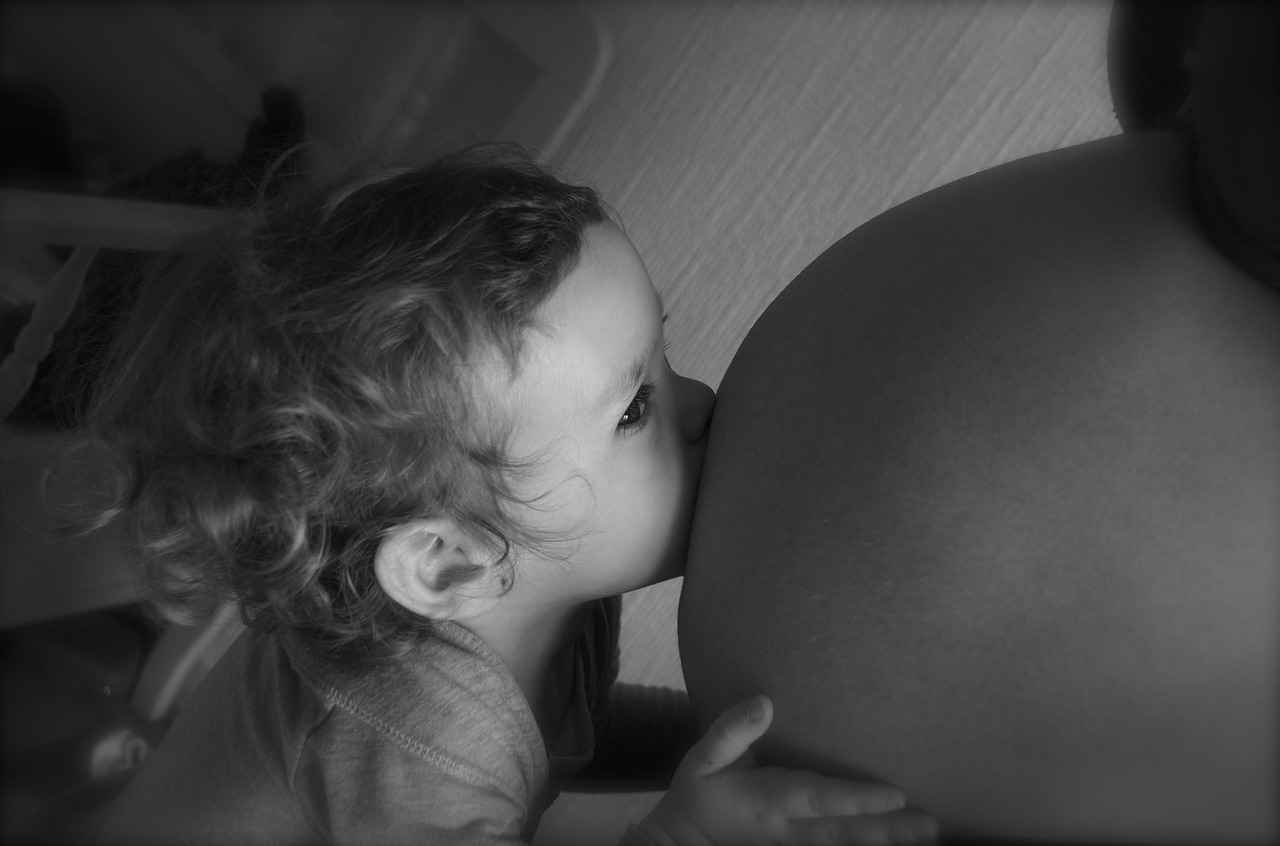Preggophilia has emerged as a fascinating and often misunderstood interest within the broader spectrum of human sexuality. This article delves into the intricacies of preggophilia, examining its psychological roots, ethical implications, and the societal impact it has on both individuals and communities. By shedding light on this unique phenomenon, we aim to foster a deeper understanding and acceptance of diverse sexual interests.
What Is Preggophilia?
Preggophilia refers to a sexual attraction to pregnant individuals. This attraction can encompass various aspects, including the physical changes associated with pregnancy, the nurturing role often attributed to pregnant individuals, and the societal perceptions surrounding motherhood. Understanding preggophilia requires looking beyond mere attraction; it involves exploring the emotional and psychological connections that individuals may have with pregnancy and the symbolism it carries.
How Common Is Preggophilia?
While precise statistics on preggophilia are scarce, anecdotal evidence suggests a growing community of individuals who identify with this interest. Online platforms, including forums and social media, have become vital spaces for those exploring preggophilia, allowing for greater visibility and acceptance. The anonymity of the internet has enabled individuals to share their experiences and connect with others who share similar attractions, contributing to a sense of community.
What Are the Psychological Factors Behind Preggophilia?
The psychological underpinnings of preggophilia can be complex. For some, the attraction may stem from a desire for nurturing and care, as pregnancy is often associated with these qualities. Others may find the physical changes that occur during pregnancy to be sexually appealing. The relationship between preggophilia and other fetishes is also noteworthy; understanding how preggophilia fits into the broader category of sexual interests can provide valuable insights into human sexuality.
How Does Preggophilia Manifest in Online Communities?
Online communities dedicated to preggophilia have flourished, providing a platform for individuals to share their interests and experiences. These spaces often feature discussions about personal stories, artwork, and media that resonate with the preggophilic experience. The sense of belonging that these communities offer can be crucial for individuals seeking acceptance and understanding, particularly in a society that often stigmatizes unconventional sexual interests.
What Are the Ethical Implications of Preggophilia?
The ethical considerations surrounding preggophilia are multifaceted. Concerns about objectification and consent are paramount, as relationships involving individuals with this interest must prioritize mutual respect and understanding. It is essential for those who engage with preggophilia to navigate these ethical waters carefully, ensuring that all parties involved are comfortable and consenting to the dynamics of their interactions.
Are There Health Risks Associated with Preggophilia?
While preggophilia itself does not pose direct health risks, the behaviors associated with it may carry potential implications. Engaging in any sexual interest requires a consideration of emotional and physical health, particularly when it involves vulnerable populations. Open communication and awareness of boundaries are crucial for maintaining healthy relationships.
How Do Societal Norms Influence Perceptions of Preggophilia?
Societal attitudes toward pregnancy and sexuality significantly shape how preggophilia is perceived. Cultural norms can either foster acceptance or perpetuate stigma, impacting how individuals with this interest view themselves and their attractions. Understanding these societal influences can help in promoting a more inclusive dialogue about diverse sexual interests.
What Role Does Media Play in Shaping Preggophilia?
Media representations can play a pivotal role in shaping public perceptions of preggophilia. Films, television shows, and online content often depict pregnant individuals in various ways, influencing societal attitudes. Positive representation can help normalize preggophilia, while negative portrayals may contribute to stigma and misunderstanding.
How Can Individuals Navigate Their Interest in Preggophilia?
Navigating an interest in preggophilia can be challenging, but self-acceptance and open communication are key. Individuals may benefit from seeking out supportive communities where they can share their experiences and connect with others. Engaging in honest discussions with partners about desires and boundaries can also foster healthier relationships.
What Are the Differences Between Preggophilia and Other Fetishes?
Understanding how preggophilia differs from other sexual fetishes can clarify its unique aspects. While many fetishes revolve around specific objects or body parts, preggophilia is distinct in its focus on the transformative experience of pregnancy. This section explores these distinctions, highlighting both the similarities and differences with other common fetishes.
How Do Relationships Change with Preggophilia?
Preggophilia can influence romantic relationships in various ways. Partners may need to navigate feelings of discomfort or curiosity, and open communication is essential for maintaining a healthy dynamic. Discussing preferences and boundaries can help partners understand each other better, ultimately strengthening their bond.
What Are the Legal Considerations Surrounding Preggophilia?
Legal perspectives on preggophilia can vary widely based on location and cultural context. Understanding the laws related to consent and adult interactions is crucial for individuals who identify with this interest. Awareness of legal boundaries can help ensure that all parties involved feel safe and respected.
How Can Society Foster Understanding Around Preggophilia?
Promoting understanding and acceptance of diverse sexual interests is essential for creating an inclusive society. Educational initiatives, open dialogues, and community support can help dismantle stigma and foster empathy for those with preggophilia. Encouraging conversations about sexuality can lead to greater acceptance and understanding.
What Resources Are Available for Those Interested in Preggophilia?
- Books exploring sexuality and fetishes
- Online forums and communities for support
- Educational websites offering insights into preggophilia
What Are the Future Trends in Understanding Preggophilia?
As societal attitudes evolve, so too may the understanding of preggophilia. Ongoing research and open discussions can contribute to a greater acceptance of diverse sexual interests, paving the way for more inclusive communities. The future may hold promising developments in how preggophilia is perceived and understood.
How Can Open Conversations Reduce Stigma Around Preggophilia?
Engaging in open dialogues about preggophilia can significantly help reduce stigma. By fostering an environment where diverse sexual interests can be discussed without judgment, society can promote empathy and understanding. Encouraging these conversations is vital for creating a more inclusive world for everyone.
In conclusion, the phenomenon of preggophilia encompasses a complex interplay of psychological, ethical, and societal factors. By understanding this interest more deeply, we can foster a more inclusive dialogue that respects individual differences while addressing the ethical considerations involved.

What Is Preggophilia?
Preggophilia is a term that describes a unique sexual attraction to pregnant individuals. This niche interest is often misunderstood and can evoke a range of reactions, from curiosity to discomfort. To understand preggophilia, it is essential to delve deeper into its definition, the psychological motivations behind it, and the societal implications it carries. As we explore this topic, we will uncover the complexities surrounding this attraction and how it fits into the broader spectrum of human sexuality.
At its core, preggophilia refers specifically to the sexual attraction towards pregnant individuals. This attraction may stem from various factors, including the physical changes that occur during pregnancy, such as the growing belly and hormonal shifts. For some, these changes can symbolize fertility and the potential for new life, which may heighten sexual appeal.
Understanding preggophilia requires examining the psychological aspects that contribute to this attraction. Many individuals who identify with this interest may find that it is tied to a broader fetishistic framework. Fetishes are often characterized by a strong emotional or sexual response to a specific object or situation, and in the case of preggophilia, the focus is on the pregnant form.
Moreover, the attraction to pregnant individuals can also be influenced by cultural narratives surrounding motherhood and femininity. In many societies, pregnancy is celebrated and revered, which can enhance the allure of pregnant bodies. This societal reverence can create a complex interplay between desire and respect, making preggophilia a multifaceted interest.
While preggophilia may seem unconventional, it is essential to recognize that sexual attractions vary widely among individuals. Just as some may be drawn to specific body types or clothing, others may find themselves attracted to the unique experience of pregnancy. This diversity in sexual interests is a natural part of human sexuality.
It is also important to note that preggophilia exists within a broader context of sexual preferences and fetishes. Understanding where it fits in can help demystify the attraction and promote a more inclusive dialogue around sexual diversity. For those who identify with preggophilia, it is crucial to navigate this interest with respect for the individuals involved, ensuring that consent and mutual understanding are prioritized.
In summary, preggophilia is a complex attraction that encompasses various psychological, cultural, and personal factors. By exploring its definition and underlying motivations, we can foster a more nuanced understanding of this unique interest and its place within the spectrum of human sexuality.

How Common Is Preggophilia?
The phenomenon of preggophilia has recently gained attention, yet its prevalence remains an enigma. While comprehensive studies are lacking, anecdotal evidence suggests that there is a burgeoning community of individuals who identify with this interest. In this section, we will delve deeper into the visibility and acceptance of preggophilia across various online platforms, shedding light on how this niche attraction is manifesting in today’s digital age.
To understand the commonality of preggophilia, it is essential to consider the various online spaces where discussions about this interest take place. Social media platforms, forums, and dedicated websites have become hubs for individuals to connect, share experiences, and explore their attractions. For instance, platforms like Reddit host specific subreddits where users can engage in conversations about preggophilia, exchange stories, and share content that resonates with their interests. These forums not only provide a sense of community but also serve as a valuable resource for individuals seeking to understand their feelings in a safe environment.
Moreover, the visibility of preggophilia is evident in the growing number of online groups dedicated to this attraction. Many of these communities emphasize acceptance and understanding, allowing members to express their feelings without the fear of judgment. This sense of belonging can be particularly important for individuals who may feel isolated due to their unique interests. As more people share their experiences, the stigma surrounding preggophilia may gradually diminish, paving the way for greater acceptance.
| Platform | Type of Content | Community Size |
|---|---|---|
| Discussions, Stories | Growing | |
| Facebook Groups | Support, Sharing | Varied |
| Dedicated Websites | Articles, Forums | Moderate |
In addition to social media, the representation of preggophilia in popular culture can also influence its visibility. Various online content creators, including bloggers and YouTubers, have begun to discuss this topic openly, further normalizing the conversation around preggophilia. Such discussions can spark curiosity and lead to a wider acceptance of diverse sexual interests.
However, it is important to approach the topic of preggophilia with sensitivity. While the community is growing, there are still misconceptions and stigmas associated with this attraction. Many individuals may feel hesitant to openly identify as preggophilic due to the fear of societal judgment. Thus, fostering a more inclusive dialogue is crucial to understanding and accepting this unique interest.
In summary, while the exact prevalence of preggophilia remains unclear, the increasing visibility of this attraction on various online platforms suggests a growing community. As more individuals come forward to share their experiences, the potential for greater acceptance and understanding increases. By creating safe spaces for discussion and promoting open dialogue, society can help to diminish the stigma surrounding preggophilia and foster a more inclusive environment for all.

What Are the Psychological Factors Behind Preggophilia?
Understanding the psychological factors behind preggophilia is essential to grasp why some individuals find this niche attraction compelling. Preggophilia, characterized by sexual attraction to pregnant individuals, intertwines with various psychological elements that shape human sexuality. This exploration delves into the intricate web of fetishes, desires, and the broader significance of pregnancy in our sexual lives.
Firstly, fetishes are often rooted in psychological conditioning, where specific stimuli become associated with sexual arousal. In the case of preggophilia, the physical changes associated with pregnancy—such as a growing belly, hormonal shifts, and an aura of fertility—can trigger an emotional and sexual response in some individuals. This phenomenon can be linked to a psychological concept known as objectification, whereby certain traits or conditions are fetishized, leading to a focused attraction that may not align with conventional standards of beauty or desirability.
- Symbolism of Pregnancy: Pregnancy symbolizes life, creation, and nurturing, which can evoke deep-seated desires for connection and intimacy.
- Maternal Archetype: The maternal figure often embodies comfort and care, leading to an attraction that transcends mere physicality.
- Fertility and Reproduction: The innate human drive for reproduction can manifest as a fascination with pregnancy, as it represents the peak of fertility.
Additionally, the psychological aspect of desire plays a significant role in preggophilia. Individuals may feel a strong urge to fulfill their fantasies, which can lead to a heightened interest in pregnant bodies. This desire can be influenced by personal experiences, societal norms, and even media portrayals that glorify or sensationalize pregnancy. The interplay between personal history and societal influences can create a unique psychological landscape that drives interest in preggophilia.
Moreover, social acceptance of various sexual interests has evolved over time, allowing individuals to explore their desires more openly. Online communities have emerged where people can share experiences, discuss their attractions, and connect with like-minded individuals. This sense of community can validate feelings and provide a safe space for exploration, further deepening the psychological roots of preggophilia.
Lastly, it’s vital to consider the implications of these psychological factors. While exploring preggophilia can be a source of pleasure and connection for some, it also raises questions about ethics and consent. Engaging in open discussions about these topics can help individuals navigate their interests responsibly, fostering a more inclusive understanding of human sexuality.
In summary, the psychological factors behind preggophilia are complex and multifaceted, intertwining personal desires, societal influences, and the inherent symbolism of pregnancy. By examining these elements, we gain a deeper understanding of this unique attraction and its place within the broader spectrum of human sexuality.

How Does Preggophilia Manifest in Online Communities?
The phenomenon of preggophilia has garnered increasing attention in recent years, particularly through the lens of online communities and social media platforms. These digital spaces have become essential for individuals who share this interest, allowing them to connect, communicate, and explore their feelings in a supportive environment. In this section, we delve into how preggophilia manifests in online communities, highlighting the dynamics of these interactions and the content shared among members.
Online forums and social media platforms serve as vibrant hubs for individuals interested in preggophilia. These communities facilitate open dialogue about experiences, preferences, and feelings related to the attraction to pregnant individuals. Members often share personal stories, artwork, and curated content that resonates with their unique interests. This sharing not only fosters connection but also helps normalize what can be a stigmatized interest.
- Discussion Forums: Websites like Reddit feature dedicated subreddits where users can post questions, share experiences, and seek advice. These forums provide a safe space for individuals to express their feelings without fear of judgment.
- Social Media Groups: Platforms such as Facebook host private groups where members can share images, articles, and personal narratives. These groups often emphasize a sense of community and support, helping individuals feel less isolated.
- Creative Expression: Many individuals express their interest through art, writing, or photography. Platforms like DeviantArt or Tumblr allow artists to share their work, which often features themes of pregnancy and attraction. This creative outlet can be incredibly validating for those who identify with preggophilia.
Moreover, the anonymity provided by online platforms allows individuals to explore their interests without the constraints of societal norms. This can lead to more candid discussions about the psychological aspects of preggophilia, such as the reasons behind the attraction and how it intersects with broader themes of sexuality. Members often engage in educational discussions, sharing articles and research that shed light on the psychological factors at play.
Despite the supportive nature of these communities, it is essential to acknowledge the potential for negative interactions. As with any online space, there can be instances of trolling or harassment. However, many communities actively moderate discussions to ensure a respectful environment. This moderation is crucial in maintaining a safe space for individuals to share their passions and challenges.
In summary, online communities play a pivotal role in the manifestation of preggophilia. They provide a platform for individuals to connect, share, and express their interests in a supportive environment. As these communities continue to grow, they contribute to a broader understanding of diverse sexual interests, fostering acceptance and reducing stigma.

What Are the Ethical Implications of Preggophilia?
Understanding the ethical implications of preggophilia is essential for fostering a respectful dialogue around this niche interest. As a sexual attraction to pregnant individuals, preggophilia raises significant questions about objectification and the importance of consent in relationships. This article delves into these complex ethical considerations, aiming to shed light on the nuances involved.
At its core, the concern surrounding objectification arises from the potential for individuals with preggophilia to view pregnant people primarily as objects of desire rather than as whole individuals. This perspective can lead to a lack of recognition of the pregnant person’s autonomy, emotions, and experiences. It is crucial to remember that pregnancy is a profound and often challenging experience, filled with emotional and physical changes. When someone is attracted to a pregnant person solely for their pregnancy, it may diminish the multifaceted nature of that individual, reducing them to merely a vessel for their attraction.
Moreover, the concept of consent plays a vital role in relationships involving preggophilia. Like any other sexual interest, it is essential that all parties involved engage in open and honest communication about their desires and boundaries. Consent must be enthusiastic and ongoing, ensuring that everyone feels comfortable and respected. This is particularly important in situations where one partner may not share the same interest or may feel uncomfortable with the dynamics that preggophilia introduces.
- Understanding Boundaries: It is important for individuals with preggophilia to recognize and respect their partner’s boundaries. Open discussions can help navigate any discomfort or concerns.
- Encouraging Open Dialogue: Partners should feel safe discussing their feelings about preggophilia without fear of judgment. This openness can foster a healthier relationship.
- Recognizing Individuality: Emphasizing the individuality of pregnant partners is crucial. They should never be seen solely through the lens of their pregnancy.
Additionally, societal perceptions of pregnancy and sexuality can complicate the ethical landscape surrounding preggophilia. In many cultures, pregnancy is often idealized, which can lead to unrealistic expectations and pressures for pregnant individuals. This idealization may inadvertently contribute to the objectification of pregnant people, as they may feel they must conform to certain societal standards of beauty or behavior. As such, it is essential to challenge these societal norms and promote a broader understanding of pregnancy that encompasses its complexities.
In conclusion, navigating the ethical implications of preggophilia requires a thoughtful and compassionate approach. By emphasizing the importance of consent, recognizing the individuality of pregnant partners, and challenging societal perceptions, we can foster a more respectful dialogue around this unique interest. Ultimately, understanding the ethical dimensions of preggophilia not only benefits individuals with this attraction but also contributes to a more inclusive and empathetic society.

Are There Health Risks Associated with Preggophilia?
Preggophilia, characterized by a sexual attraction to pregnant individuals, raises important questions about the health implications associated with this interest. While the attraction itself may not directly lead to health risks, the behaviors and dynamics surrounding preggophilia can have significant physical and emotional consequences for those involved. Understanding these potential health risks is crucial for individuals who identify with this interest, as well as their partners.
Engaging in preggophilia can lead to various emotional health challenges. Individuals may experience feelings of isolation or shame, particularly if they believe their interests are stigmatized or misunderstood by society. This emotional burden can manifest in several ways:
- Anxiety: Concerns about societal acceptance and the fear of judgment can lead to heightened anxiety levels.
- Depression: Feelings of loneliness or disconnection from others who share similar interests can contribute to depressive symptoms.
- Relationship Strain: Partners may feel uncomfortable or confused about their loved one’s attraction, leading to potential conflicts or misunderstandings.
It is essential for individuals to seek supportive communities or therapy to address these emotional challenges, fostering a healthier mindset.
While preggophilia itself does not inherently pose physical health risks, certain behaviors associated with it might. For instance, individuals may engage in risky sexual behaviors that could lead to sexually transmitted infections (STIs) or unintended pregnancies. Additionally, if the attraction leads to fetishistic practices that involve physical contact, the following considerations come into play:
- Consent and Safety: It is crucial that all parties involved are fully informed and consenting, as any lack of consent can lead to physical and emotional harm.
- Physical Health of Pregnant Individuals: Engaging in sexual activities with pregnant individuals requires careful consideration of their health and comfort. Certain sexual practices may not be safe during pregnancy.
To navigate the complexities of preggophilia while minimizing health risks, individuals can take several proactive steps:
- Open Communication: Discussing desires and boundaries with partners can create a more supportive environment, reducing misunderstandings.
- Seek Professional Guidance: Consulting with a mental health professional can help individuals process their feelings and develop coping strategies.
- Educate Yourself: Understanding the implications of pregnancy and sexual health can empower individuals to make informed decisions.
In summary, while preggophilia may not directly lead to health risks, the associated behaviors can introduce emotional and physical challenges. By fostering open communication, seeking support, and prioritizing safety, individuals can engage with their interests in a healthier, more informed manner. As society continues to evolve in its understanding of diverse sexual interests, it is crucial to address these aspects to promote well-being for all involved.

How Do Societal Norms Influence Perceptions of Preggophilia?
Understanding how societal norms shape perceptions of preggophilia is essential in grasping the complexities surrounding this niche interest. Societal attitudes towards pregnancy and sexuality can significantly influence how individuals engage with and perceive preggophilia. This section delves into cultural views, acceptance, and the stigma that often accompanies this attraction.
To begin with, it is important to recognize that societal norms are not static; they evolve over time, influenced by various factors such as media representation, cultural beliefs, and historical context. In many cultures, pregnancy is often viewed through a lens of reverence and purity, while in others, it may be associated with shame or taboo. This duality can create a complex backdrop for preggophilia, where the attraction to pregnant individuals may be seen as both fascinating and controversial.
How Do Cultural Views Shape Acceptance?
- Cultural Context: In cultures where pregnancy is celebrated, individuals may feel more comfortable expressing their attraction to pregnant bodies. Conversely, in cultures that stigmatize sexuality or view pregnancy as a private matter, such expressions may be met with disapproval.
- Media Representation: The portrayal of pregnant individuals in media can also play a crucial role. Positive representations can normalize preggophilia, while negative or sensationalized portrayals can reinforce stigma.
- Historical Perspectives: Historical attitudes towards women’s bodies and sexuality significantly impact current perceptions. For instance, the feminist movements have challenged traditional views on female sexuality, leading to a broader acceptance of diverse sexual interests.
Furthermore, the social stigma surrounding preggophilia often stems from misunderstandings about the nature of sexual attraction. Many people may equate preggophilia with objectification or fetishization, leading to negative judgments. However, it is essential to differentiate between healthy attraction and harmful behaviors. Open discussions about sexuality can help demystify preggophilia and promote a more nuanced understanding of this interest.
What Are the Implications of Stigmatization?
Stigmatization can have profound effects on individuals who identify with preggophilia. Those who feel marginalized may experience feelings of shame, isolation, and anxiety, which can hinder their ability to form healthy relationships. It’s crucial for society to foster an environment where individuals can express their interests without fear of judgment. This can be achieved through education, awareness campaigns, and inclusive dialogues that celebrate the diversity of human sexuality.
In conclusion, societal norms play a pivotal role in shaping perceptions of preggophilia. By understanding the cultural, historical, and media influences that contribute to acceptance or stigma, we can create a more inclusive environment that respects individual differences. Engaging in open conversations about sexuality can ultimately lead to greater empathy and understanding, allowing for a more informed perspective on preggophilia and other diverse sexual interests.

What Role Does Media Play in Shaping Preggophilia?
Media representations play a crucial role in shaping societal perceptions of various topics, including niche interests like preggophilia. This phenomenon, characterized by a sexual attraction to pregnant individuals, is often influenced by how it is depicted in films, television shows, and online content. By examining these portrayals, we can better understand their implications for public perception and the individuals involved.
In the realm of film and television, pregnant characters are frequently portrayed through a lens that emphasizes traditional narratives of motherhood and family. This can lead to a one-dimensional representation, where the complexities of pregnancy are overshadowed by stereotypes. For instance, pregnant women are often depicted as nurturing and self-sacrificing, which can reinforce societal expectations about their roles. These portrayals can inadvertently shape how audiences perceive preggophilia—by framing pregnancy as an object of desire, they may normalize or fetishize this interest.
Moreover, the online landscape has become a significant platform for discussions around preggophilia. Social media and forums provide spaces where individuals can share experiences and content related to their interests. This can lead to a sense of community among those who identify with preggophilia, but it also raises concerns about the potential for objectification. Online content often blurs the lines between admiration and fetishization, making it essential for viewers to critically evaluate the messages being conveyed.
One of the most striking aspects of media representation is its ability to shape cultural norms and attitudes. When films or shows depict pregnant characters in a sexualized manner, they can contribute to a broader acceptance of preggophilia within certain circles. However, this acceptance is not universally embraced. Many people may feel discomfort or confusion regarding this interest, particularly if they are exposed to sensationalized or negative portrayals in the media.
Additionally, the implications of these portrayals extend beyond individual perceptions. They can influence societal attitudes towards pregnancy and sexuality, potentially leading to stigma or misunderstanding. It is crucial to recognize that while media can foster acceptance, it can also perpetuate harmful stereotypes that affect the way pregnant individuals are viewed and treated.
To navigate these complex dynamics, it is essential for media creators to approach the subject of pregnancy and preggophilia with sensitivity and awareness. By presenting more nuanced and respectful representations, they can help foster a more inclusive dialogue that acknowledges the diversity of human sexuality.
In conclusion, the role of media in shaping perceptions of preggophilia is multifaceted. Through both positive and negative portrayals, media can influence societal attitudes and individual experiences. As we continue to explore this topic, it is vital to advocate for more authentic and respectful representations that reflect the complexities of human sexuality and the realities of pregnancy.

How Can Individuals Navigate Their Interest in Preggophilia?
Understanding and navigating an interest in preggophilia can be a nuanced journey for individuals who identify with this attraction. This unique interest, which involves a sexual attraction to pregnant individuals, often comes with its own set of challenges and societal perceptions. In this section, we will explore practical advice on self-acceptance, effective communication, and finding supportive communities that can help individuals feel understood and validated.
The first step in navigating any unique interest is self-acceptance. It is essential to recognize that having an attraction to pregnant individuals is a part of one’s sexual identity. Acknowledging this can be both liberating and daunting. Here are some practical tips for fostering self-acceptance:
- Educate Yourself: Understanding the psychological aspects of preggophilia can help normalize it. Reading literature or articles on the subject can provide context and reassurance.
- Reflect on Your Feelings: Take time to think about what preggophilia means to you personally. Journaling your thoughts can be an effective way to process your feelings.
- Seek Professional Guidance: If feelings of shame or confusion persist, consider talking to a therapist who specializes in sexual identity. They can provide a safe space to explore your feelings without judgment.
Once individuals have embraced their interest, communicating with potential partners is crucial. This can be a sensitive topic, and honesty is key. Here are some strategies for effective communication:
- Choose the Right Moment: Discussing your interests should happen in a comfortable setting where both partners feel at ease.
- Be Honest and Open: Share your feelings and explain what preggophilia means to you. Use “I” statements to express your thoughts without placing pressure on your partner.
- Listen to Their Perspective: Be prepared for a range of reactions, and ensure that you give your partner space to express their feelings and concerns.
Connecting with others who share similar interests can provide a sense of belonging. Here are some ways to find supportive communities:
- Online Forums: Websites and forums dedicated to sexual interests can be a great place to meet like-minded individuals. Look for communities that prioritize respect and understanding.
- Social Media Groups: Platforms like Reddit or Facebook often have groups focused on niche interests. Engaging with these communities can help you feel less isolated.
- Local Meetups: If comfortable, consider attending local meetups or events that celebrate diverse sexual interests. This can be a great way to connect in real life.
In conclusion, navigating an interest in preggophilia involves a journey of self-discovery and open communication. By embracing your identity, fostering honest discussions with partners, and seeking out supportive communities, individuals can cultivate a more fulfilling and accepting relationship with their interests. Remember, you are not alone, and there are resources and communities available to support you along the way.

What Are the Differences Between Preggophilia and Other Fetishes?
Understanding the nuances of preggophilia in relation to other sexual fetishes can provide a clearer perspective on its distinctive characteristics. This examination reveals not only the unique aspects of preggophilia but also its similarities with various other fetishes, enriching our understanding of human sexuality.
What Is Preggophilia? Preggophilia refers to a sexual attraction to pregnant individuals, a niche interest that draws attention for its unique psychological and emotional implications. Unlike more commonly recognized fetishes, such as foot fetishism or BDSM, preggophilia is often less understood and discussed, which can contribute to feelings of isolation among those who identify with it.
How Does Preggophilia Compare to Other Fetishes? To appreciate the differences and similarities, we can categorize sexual fetishes into various types. For instance:
| Fetish Type | Definition | Common Characteristics |
|---|---|---|
| Preggophilia | Attraction to pregnant individuals | Focus on pregnancy, nurturing aspects, and physical changes |
| Foot Fetishism | Attraction to feet | Focus on foot shape, size, and adornments like nail polish |
| BDSM | Bondage, Discipline, Dominance, Submission, Sadism, Masochism | Power dynamics, physical restraint, and role-playing |
Preggophilia stands out primarily due to its connection with the themes of fertility, nurturing, and the transformative experience of pregnancy. In contrast, foot fetishism is rooted in a more physical and aesthetic appreciation, while BDSM often revolves around power exchange and psychological dynamics.
Moreover, the societal perceptions surrounding these fetishes can vary significantly. Preggophilia may face unique stigmas due to the cultural associations of pregnancy with family, responsibility, and societal norms. In contrast, foot fetishes might be seen as quirky or humorous, and BDSM can be more openly discussed in contemporary media, often framed within the context of empowerment and consent.
Another important aspect to consider is the psychological factors at play. For many, preggophilia can be linked to deeper desires for connection, care, and the nurturing aspects of relationships. This contrasts with other fetishes that may stem from purely physical attractions or power dynamics.
In summary, while preggophilia shares some common ground with other sexual fetishes, it is distinct in its focus on pregnancy and the emotional complexities associated with it. Understanding these differences not only helps in demystifying preggophilia but also fosters a broader acceptance of diverse sexual interests.
As we navigate the intricate landscape of human sexuality, acknowledging the unique aspects of preggophilia alongside other fetishes promotes a more inclusive dialogue about our varied attractions and desires.

How Do Relationships Change with Preggophilia?
Preggophilia, a niche interest characterized by sexual attraction to pregnant individuals, can have a significant impact on romantic relationships. Understanding how this attraction influences dynamics between partners is crucial for fostering healthy communication and mutual respect. In this section, we will explore how partners can effectively communicate their feelings and preferences, while also honoring each other’s boundaries.
The presence of preggophilia in a relationship can introduce unique challenges and opportunities for growth. One of the most important aspects of navigating this interest is communication. Open dialogue between partners about their feelings, desires, and boundaries is essential. This means discussing what aspects of preggophilia are appealing, what comfort levels exist, and how each partner can express their needs without feeling judged or criticized.
To facilitate this communication, couples can consider the following steps:
- Establish a Safe Space: Create an environment where both partners feel comfortable sharing their thoughts. This can be achieved by choosing a neutral location and setting aside time specifically for this conversation.
- Practice Active Listening: Each partner should take turns expressing their feelings without interruption. This shows respect and allows for a deeper understanding of each other’s perspectives.
- Be Honest Yet Sensitive: When discussing preggophilia, it’s essential to be honest about desires while also being sensitive to the partner’s feelings. Use “I” statements to express feelings, such as “I feel attracted to pregnant bodies because…”
- Set Clear Boundaries: Discuss and establish boundaries that both partners are comfortable with. This ensures that both individuals feel respected and valued in the relationship.
Additionally, it’s important to recognize that preggophilia can sometimes lead to misunderstandings or feelings of insecurity. One partner may feel objectified or reduced to their pregnant status, while the other may feel guilty for having such an attraction. Addressing these feelings openly can help mitigate potential conflicts.
Another vital area of consideration is the role of consent. Both partners must agree on how preggophilia will be integrated into their relationship. This might include discussing fantasies, role-playing scenarios, or simply acknowledging the attraction without it becoming a focal point of the relationship. Consent is not just a one-time agreement; it is an ongoing conversation that should adapt as the relationship evolves.
Furthermore, involving external support, such as therapy or counseling, can be beneficial for couples navigating the complexities of preggophilia. A trained professional can provide guidance and facilitate discussions that may be difficult to have alone.
In conclusion, while preggophilia can bring unique dynamics to a romantic relationship, it also offers opportunities for deepening connection through communication and mutual respect. By fostering open dialogue, establishing boundaries, and ensuring consent, partners can navigate this niche interest in a way that strengthens their bond rather than undermines it.

What Are the Legal Considerations Surrounding Preggophilia?
The legal landscape surrounding preggophilia is complex and varies significantly across different jurisdictions. Understanding these legal considerations is crucial for individuals who identify with this interest, as well as for those who might encounter it in their personal or professional lives. This section aims to shed light on the laws that govern behaviors and content associated with preggophilia.
Firstly, it is essential to note that preggophilia itself, defined as a sexual attraction to pregnant individuals, is not illegal. However, the legality of related behaviors can come into question depending on how they manifest. For instance, if an individual engages in consensual relationships with a pregnant partner, this is typically within the bounds of the law. Issues arise, however, when consent is not clear, or when the portrayal of pregnancy in media and other content crosses ethical lines.
In many places, laws surrounding obscenity and adult content play a significant role in shaping what is permissible in relation to preggophilia. For example, certain jurisdictions may have strict regulations regarding the depiction of sexual content involving pregnant individuals, particularly if it is perceived as exploitative or degrading. This can include restrictions on the distribution of such material, especially if it is accessible to minors.
Additionally, child protection laws are a critical consideration. If any content associated with preggophilia inadvertently involves minors or is deemed to exploit vulnerable individuals, it can lead to serious legal repercussions. Therefore, anyone involved in creating or sharing content related to this interest must be vigilant about the legal implications of their actions.
Moreover, the concept of consent is paramount in legal discussions surrounding preggophilia. It is vital that all parties involved in any relationship or interaction are fully informed and consenting. This principle extends to online communities where discussions about preggophilia occur. The sharing of personal stories or experiences must always respect the privacy and autonomy of individuals, ensuring that consent is obtained before sharing sensitive information.
As societal attitudes towards sexual interests evolve, so too do the laws that govern them. Advocacy for sexual rights and the push for more inclusive legal frameworks may influence future legislation. It is essential for individuals with an interest in preggophilia to stay informed about changes in the law and to engage in advocacy that promotes understanding and acceptance while ensuring ethical standards are maintained.
In summary, while preggophilia itself is not illegal, the legal considerations surrounding it are multifaceted and require careful navigation. Individuals must be aware of the laws regarding consent, obscenity, and the portrayal of pregnant individuals in media to ensure they engage in safe and legally compliant behaviors.

How Can Society Foster Understanding Around Preggophilia?
Understanding and acceptance of diverse sexual interests, including preggophilia, is crucial for creating a more inclusive society. As we navigate a world rich in varied sexual expressions, it is essential to foster an environment where individuals feel safe and accepted, regardless of their preferences. This section explores actionable ways society can promote understanding and acceptance of preggophilia, encouraging open dialogue and reducing stigma.
First and foremost, education plays a pivotal role in fostering understanding. Schools, community centers, and online platforms can introduce comprehensive sexual education programs that include discussions about various sexual interests, including preggophilia. These programs should aim to demystify the topic, presenting it as a legitimate aspect of human sexuality rather than something to be shunned. By educating the public, we can dismantle misconceptions and fears surrounding preggophilia, paving the way for a more accepting society.
Another important step is to encourage open conversations about sexual interests. Creating safe spaces—both online and offline—where individuals can share their experiences without fear of judgment is vital. Support groups or forums specifically for those with niche interests can help individuals feel less isolated. These discussions can also include allies who wish to understand and support their loved ones, fostering a community of empathy and acceptance.
Additionally, representation in media is key to fostering understanding. Positive portrayals of diverse sexual interests in movies, television shows, and literature can help normalize these topics. When mainstream media includes characters or storylines that reflect a variety of sexual preferences, including preggophilia, it can challenge stereotypes and promote acceptance. This representation can also provide individuals with relatable experiences, making them feel seen and validated.
Moreover, engaging in advocacy and outreach initiatives can significantly impact societal perceptions. Organizations that focus on sexual health and rights can lead campaigns to raise awareness about preggophilia. These campaigns can include workshops, informational pamphlets, and social media outreach to educate the public. By actively promoting discussions around preggophilia, these organizations can help reduce stigma and encourage acceptance.
Lastly, it is essential to emphasize the importance of consent and mutual respect in all discussions surrounding sexual interests. Encouraging individuals to communicate openly with their partners about their desires and boundaries fosters a culture of respect. This approach not only enhances personal relationships but also contributes to a broader societal understanding of diverse sexual interests.
In summary, fostering understanding and acceptance of preggophilia requires a multifaceted approach that includes education, open dialogue, representation in media, advocacy, and a strong emphasis on consent. By implementing these strategies, society can create an inclusive environment where all individuals feel valued and accepted for who they are.

What Resources Are Available for Those Interested in Preggophilia?
For individuals exploring the niche interest of preggophilia, a variety of resources are available that can provide valuable insights and support. Understanding this phenomenon can be challenging, but with the right tools, individuals can navigate their interests with confidence and community backing.
Resources for understanding and connecting with preggophilia can be grouped into several categories:
- Books: Literature on sexual interests, fetishes, and psychology can offer in-depth perspectives. Titles such as The Psychology of Sexuality and Fetishes: The Psychology of Sexual Desire delve into human sexuality, including niche attractions.
- Websites: Numerous online platforms cater to discussions about preggophilia. Forums like FetLife provide a community space for individuals to share experiences and connect with others who have similar interests.
- Support Groups: Online and offline support groups can be invaluable. These groups allow individuals to discuss their feelings in a safe environment, offering both emotional support and practical advice.
- Social Media: Platforms like Reddit and Facebook have communities where individuals can share content, experiences, and advice related to preggophilia.
Engaging with these resources can help individuals feel less isolated in their interests. Reading about others’ experiences and understanding the psychological aspects of preggophilia can foster a sense of belonging. Additionally, these resources can provide essential information on how to navigate relationships and communicate effectively with partners about their interests.
When exploring these resources, it is crucial to approach them with an open mind. Here are some practical tips:
- Start Small: Begin with one book or an online article to gauge your comfort level and interest.
- Engage with Communities: Join forums or social media groups to observe discussions before actively participating.
- Respect Boundaries: In any community, it’s vital to respect the boundaries of others and engage in a manner that is consensual and respectful.
- Seek Professional Guidance: If feelings of confusion or distress arise, consider speaking with a therapist who specializes in sexual health and fetishes.
Utilizing available resources can lead to several benefits:
- Increased Understanding: Gaining knowledge about preggophilia can help individuals understand their feelings and desires better.
- Connection: Finding like-minded individuals can reduce feelings of isolation and create opportunities for friendship and support.
- Empowerment: Knowledge is empowering. Understanding the ethical and psychological aspects can help individuals navigate their interests responsibly.
In conclusion, for those interested in preggophilia, a wealth of resources exists to provide support, education, and community. By engaging with these resources, individuals can explore their interests in a safe and informed manner, fostering a positive understanding of their unique sexual attraction.

What Are the Future Trends in Understanding Preggophilia?
As we navigate the complexities of human sexuality, the phenomenon of preggophilia emerges as a unique interest that invites both curiosity and scrutiny. As societal attitudes evolve, so too may the understanding of preggophilia. This section explores potential future trends in research, acceptance, and community development, shedding light on how perceptions of this niche interest may transform in the coming years.
The future of understanding preggophilia is likely to be shaped by several interrelated trends, including increased research, broader societal acceptance, and the development of supportive communities. As we delve into these aspects, it becomes evident that the conversation surrounding preggophilia is evolving.
- Increased Research Initiatives: As interest in sexual diversity grows, academic and clinical research into preggophilia may expand. Researchers could explore the psychological underpinnings of this attraction, examining its roots in human sexuality and its implications for relationships. This could lead to a better understanding of the motivations behind preggophilia, as well as the potential benefits and challenges that come with it.
- Broader Societal Acceptance: With the rise of movements advocating for sexual inclusivity, societal acceptance of various sexual interests, including preggophilia, may increase. As more individuals feel empowered to express their attractions without fear of judgment, the stigma surrounding preggophilia may diminish. This shift could foster a more open dialogue about sexuality, allowing for greater understanding and empathy.
- Community Development: Online communities dedicated to preggophilia are likely to flourish as individuals seek connection and support. These platforms can serve as safe spaces for sharing experiences, stories, and resources. As these communities grow, they can help normalize discussions about preggophilia, encouraging members to embrace their identities and seek healthy relationships.
Furthermore, the intersection of technology and sexuality will play a crucial role in shaping future trends. Virtual reality and online content creation may offer innovative ways for individuals to explore their interests in a safe and consensual manner. This technological advancement can lead to new forms of expression and connection within the preggophilia community.
Moreover, as mental health awareness continues to rise, professionals in psychology and counseling may become more equipped to address the needs of individuals with preggophilia. This can include providing resources and support for those navigating their feelings and relationships, thereby fostering a healthier understanding of this interest.
In summary, the future of understanding preggophilia holds promise for increased research, societal acceptance, and community development. As we move forward, it is essential to approach this topic with an open mind, acknowledging the complexities of human sexuality and the diverse experiences that shape our understanding of attraction.

How Can Open Conversations Reduce Stigma Around Preggophilia?
Engaging in open dialogues about diverse sexual interests, including preggophilia, plays a crucial role in reducing stigma and fostering a more inclusive society. By encouraging conversations that explore the complexities of human sexuality, we can create an environment where individuals feel safe to express their identities without fear of judgment. This section delves into the importance of these discussions and how they can lead to greater empathy and understanding.
First and foremost, open dialogue allows individuals to share their experiences and perspectives. Many people who identify with preggophilia may feel isolated due to societal taboos surrounding their interests. By providing a platform for discussion, we can help break down these barriers. For instance, consider a community forum where individuals share their stories and the emotions tied to their attractions. Such spaces not only validate feelings but also promote understanding among those who may not share the same interests.
Moreover, discussing preggophilia openly can help dispel myths and misconceptions. Many people may associate this interest with negative stereotypes or misunderstandings about sexuality. By addressing these misconceptions head-on, we can replace fear with knowledge. For example, explaining that preggophilia is not inherently harmful or exploitative can help alleviate fears that often accompany discussions of niche sexual interests.
Additionally, open conversations can foster empathy among those who may not understand preggophilia. When individuals are exposed to the realities of others’ experiences, it can challenge preconceived notions and encourage a more compassionate view. This is particularly important in a world where sexual diversity is often misunderstood. By listening to the stories of those who identify with preggophilia, others may begin to see the humanity behind the label, which can lead to more supportive attitudes.
Another key aspect of reducing stigma through dialogue is the role of education. Providing accurate information about preggophilia can help individuals understand that sexual interests are varied and complex. Educational resources can include articles, workshops, or community events that focus on sexual diversity. By equipping people with knowledge, we empower them to engage in informed discussions, which can further reduce stigma.
Furthermore, creating safe spaces for these conversations is essential. Whether it’s through online communities, support groups, or educational seminars, having designated areas where individuals can speak freely about their interests without fear of backlash is vital. These spaces encourage honesty and openness, allowing individuals to explore their feelings and experiences in a supportive environment.
In conclusion, engaging in open conversations about preggophilia and other diverse sexual interests is crucial for fostering understanding and reducing stigma. By sharing experiences, dispelling myths, and promoting education, we can create a more inclusive society. The journey toward acceptance starts with dialogue, and each conversation can contribute to a greater sense of empathy and community.
In conclusion, the phenomenon of preggophilia encompasses a complex interplay of psychological, ethical, and societal factors. By understanding this interest more deeply, we can foster a more inclusive dialogue that respects individual differences while addressing the ethical considerations involved.
Preggophilia is a unique and increasingly discussed phenomenon that reflects a complex interplay of psychological, ethical, and societal factors. As society becomes more open about various sexual interests, understanding preggophilia can help foster a more inclusive dialogue that respects individual differences. This article aims to explore the intricacies of preggophilia, its implications, and how we can navigate this multifaceted interest.
What Is Preggophilia?
Preggophilia refers to a sexual attraction to pregnant individuals. This interest can manifest in various ways, from attraction to the physical changes associated with pregnancy to the emotional and psychological aspects of being pregnant. Understanding preggophilia requires examining the broader context of human sexuality, desires, and the unique significance that pregnancy holds for many.
How Common Is Preggophilia?
The prevalence of preggophilia is difficult to quantify, as it is often not documented in traditional studies of sexual behavior. However, anecdotal evidence suggests a growing community of individuals who identify with or are curious about this interest. Online platforms, particularly forums and social media, have become spaces where people share their experiences and connect with others who have similar attractions.
What Are the Psychological Factors Behind Preggophilia?
Psychologically, preggophilia can be understood through the lens of fetishes and desires. For some, the attraction may stem from a fascination with the nurturing aspects of pregnancy or the transformation of the body. Others may find the idea of pregnancy intertwined with themes of fertility and femininity, which can enhance sexual arousal. Understanding these factors can provide insights into why some individuals are drawn to this niche interest.
How Does Preggophilia Manifest in Online Communities?
Online communities play a significant role in the expression of preggophilia. Forums dedicated to various fetishes often include sections for preggophilia, where members share content, stories, and personal experiences. These platforms allow individuals to explore their interests in a safe environment, fostering connections and discussions that can reduce feelings of isolation.
What Are the Ethical Implications of Preggophilia?
The ethical considerations surrounding preggophilia are complex. One major concern is the potential for objectification, where pregnant individuals may be viewed solely through a sexual lens. It’s crucial to emphasize the importance of consent and mutual respect in any relationship involving this interest. Open communication between partners can help navigate these ethical waters.
Are There Health Risks Associated with Preggophilia?
While preggophilia itself may not pose direct health risks, the behaviors associated with it can lead to potential physical and emotional health implications. Engaging in sexual activities without consideration of a partner’s comfort and boundaries can lead to negative experiences. It’s vital for individuals to approach their interests with care and sensitivity.
How Do Societal Norms Influence Perceptions of Preggophilia?
Societal attitudes towards pregnancy and sexuality significantly shape perceptions of preggophilia. Cultural views can either foster acceptance or contribute to stigma. Understanding these societal norms can help individuals navigate their interests more comfortably and promote broader acceptance of diverse sexual attractions.
What Role Does Media Play in Shaping Preggophilia?
Media representations can influence public perception of preggophilia. Films and television often portray pregnancy in various lights, from romanticized views to more nuanced depictions. These portrayals can impact how individuals with preggophilia are perceived and how they view themselves.
How Can Individuals Navigate Their Interest in Preggophilia?
For those who identify with preggophilia, navigating this interest can be challenging. Practical advice includes embracing self-acceptance and finding supportive communities where individuals can share their experiences without judgment. Communication with partners about desires and boundaries is also essential for fostering healthy relationships.
What Are the Differences Between Preggophilia and Other Fetishes?
Understanding how preggophilia compares to other sexual fetishes can clarify its unique aspects. While many fetishes focus on specific body parts or materials, preggophilia centers around a life stage that involves profound physical and emotional changes. This distinction can help individuals explore their interests with greater clarity.
How Do Relationships Change with Preggophilia?
Preggophilia can influence romantic relationships in various ways. Partners may need to communicate their feelings and preferences openly, ensuring that both individuals feel respected and understood. Navigating these dynamics can strengthen relationships and foster deeper connections.
What Are the Legal Considerations Surrounding Preggophilia?
Legal perspectives on preggophilia can vary by location, particularly concerning the content shared within this interest. Understanding local laws and regulations is crucial for individuals involved in preggophilia to ensure that their practices align with legal standards.
How Can Society Foster Understanding Around Preggophilia?
Promoting understanding and acceptance of diverse sexual interests is essential for fostering an inclusive environment. Society can create spaces for open dialogue, education, and awareness, helping to normalize discussions around preggophilia and similar interests.
What Resources Are Available for Those Interested in Preggophilia?
For individuals seeking more information or support, various resources are available. Books, websites, and online communities can provide insights and connections, helping individuals navigate their interests in a healthy and informed manner.
What Are the Future Trends in Understanding Preggophilia?
As societal attitudes evolve, so too may the understanding of preggophilia. Future trends may include increased research, acceptance, and community development, paving the way for more inclusive discussions around this interest.
How Can Open Conversations Reduce Stigma Around Preggophilia?
Engaging in open dialogues can help destigmatize preggophilia. Discussing diverse sexual interests fosters empathy and understanding, creating a space where individuals can feel accepted and valued for who they are.
Frequently Asked Questions
- What is preggophilia?
Preggophilia refers to a sexual attraction to pregnant individuals. It’s a niche interest that often sparks curiosity about its psychological and emotional aspects.
- How common is preggophilia?
While exact statistics are hard to come by, anecdotal evidence suggests that there is a growing community online that discusses and explores preggophilia.
- What psychological factors contribute to preggophilia?
Factors can include fetishes, desires related to pregnancy, and the significance of fertility and motherhood in human sexuality. Each individual’s attraction may stem from different psychological backgrounds.
- How does preggophilia manifest in online communities?
Online forums and social media platforms often serve as spaces for individuals to share experiences, art, and discussions about preggophilia, fostering a sense of community and understanding.
- What are the ethical implications of preggophilia?
The ethical considerations can be complex, especially regarding consent and the potential for objectification. It’s crucial to approach this topic with sensitivity and respect.
- Are there health risks associated with preggophilia?
While the attraction itself may not pose direct health risks, certain behaviors associated with it could potentially lead to emotional or physical health implications.
- How do societal norms influence perceptions of preggophilia?
Societal attitudes towards pregnancy and sexuality significantly shape how preggophilia is viewed, often leading to either acceptance or stigma based on cultural beliefs.
- What role does media play in shaping preggophilia?
Media representations can greatly influence public perceptions, often portraying pregnant individuals in various lights that can either normalize or sensationalize this interest.
- How can individuals navigate their interest in preggophilia?
It’s important for individuals to practice self-acceptance, communicate openly with partners, and seek supportive communities to explore their interests in a healthy way.
- What are the differences between preggophilia and other fetishes?
While preggophilia shares similarities with other fetishes, it is unique in its focus on pregnancy, which introduces different psychological and emotional elements.
- How do relationships change with preggophilia?
Preggophilia can influence romantic relationships by requiring partners to communicate their feelings, preferences, and boundaries more openly.
- What are the legal considerations surrounding preggophilia?
Legal perspectives can vary by location, and it’s vital to understand the laws that may apply to the content and behaviors associated with this interest.
- How can society foster understanding around preggophilia?
Promoting open dialogue and education about diverse sexual interests can help create a more inclusive environment for individuals with preggophilia.
- What resources are available for those interested in preggophilia?
There are various books, websites, and online communities available for individuals seeking more information or support regarding preggophilia.
- What are the future trends in understanding preggophilia?
As societal attitudes shift, we may see evolving perspectives on preggophilia, leading to increased research, acceptance, and community development.
- How can open conversations reduce stigma around preggophilia?
Engaging in open conversations about diverse sexual interests can help destigmatize preggophilia, fostering empathy and understanding among individuals.














